Advancing UChicago’s Distinct Culture of Free Expression
At a time of political polarization, President Paul Alivisatos outlines priorities for the “tough work” of upholding UChicago’s free expression principles.
January 17, 2023
As we mark the start of a new year and the beginning of winter quarter, I write to share my reflections on the central culture and practice of free expression at the University of Chicago. Together, in the coming years, our community will need to continue devoting considerable effort to the broad and deep cultivation of this culture.
I am prompted by the fact that we live in an era of heightened political polarization, and free expression is in clear distress. This poses challenges to the practice of free inquiry throughout academia. During my time back at UChicago, I have seen firsthand the genuine depth of commitment to free expression within our community; yet it is essential to our mission that we constantly undertake the difficult work of interrogating the integrity of its practice on our campuses and renew our commitment to it time and time again. This unending exercise suffuses the spirit of how we drive rigorous inquiry on our campuses, and it touches every aspect of who we are.
Designed from the outset to foster the creation of new fields of knowledge and to offer transformational educational experiences, the University of Chicago was founded to advance the principles of academic freedom and free expression. Over generations, our community and our leadership have repeatedly worked to defend free expression and create the necessary structures to uphold it. This is an important legacy, and I urge you to examine this timeline of critical events and the key documents that underpin our culture and practice.
Looking ahead, there are four elements of our culture of free expression that are vital to uphold and cultivate: understanding, practicing, protecting, and advancing free expression.
We do much to promote the understanding of free expression—both by providing education to those who are just joining our community and by serving as a sponsor for wide-ranging inquiry, research, and discourse on topics related to free expression.
As part of that education, incoming College students last fall were invited to grapple with the big questions related to free expression and its practice through Professor Agnes Callard’s Aims of Education address and the subsequent open discussions led by Dean John Boyer and other faculty. At the Law School orientation, students engaged with a hypothetical challenge to free expression. The premise of the case study involved a student group that issued an invitation to a Russian state-sponsored advocate of the invasion of Ukraine, precipitating a series of cascading responses from people from within and without the University. While the specifics were hypothetical, these annual traditions held during orientation help to create a common language for facing real challenges when they arise. These are but two examples of many. They are models for ways in which, in the coming years, we can do more to set the stage for students throughout the University to be ready to participate in and get the most from the robust give and take of ideas during their time here.
In November, at the inaugural event of the new campus-wide Zell Event Series on free expression, the University hosted a live interrogation of how to practice free expression in today’s social and political environment. The featured speaker was Anthony Julius, a barrister, celebrated author, and professor of law at University College London, and he engaged UChicago Law School professor Genevieve Lakier in a spirited conversation. In discussion, they examined the vast implications of what is enabled by the unprecedented scale and velocity of communication across social media. Free expression in social media both informs—and sometimes disrupts—the quality of open discourse within universities, and it is a central challenge for both our and all institutions of higher education today. I invite all of you to participate directly in future events in this series. In the coming years, our culture of free expression will be enhanced by research, colloquia, seminars, and events that help elevate our understanding of the full range of topics related to free expression.
We practice free expression each and every day, in every discipline, research program, and classroom. I encourage you to seize opportunities to engage with our university’s culture of free expression across all of these venues. By nature of this process, it is inevitable that any one of us will encounter ideas that seem absurd or offensive. In past remarks, I have shared that, in my experience, every class, lecture, extracurricular activity, and informal discussion also has within it the possibility of being that special moment when we unlock the ability to see some aspect of the world in a new way. We are only able to access that possibility if we have the willingness to engage with others across differences. This requires truly listening to the perspectives of others, and, in turn, being open to sharing our own perspectives. This kind of practice is the strongest possible defense of free expression.
A healthy culture of free expression arises from the acts of many. Yet the actions of a few, when left unchecked, could disrupt that culture and thus significantly harm our community. For this reason, the protection of free expression is critical for it to thrive. I am committed to protecting free expression whenever there are efforts to quash it. This includes our clear commitment to hosting invited speakers, however controversial they may be. We saw this tested on one occasion just last fall, when we persisted in featuring an Institute of Politics-hosted event online despite an outpouring of social media-fueled calls for cancellation. Within the University, we have a clear set of policies on disruptive conduct that will guide our decision making regarding penalties and sanctions. Beyond the University, our civil polity has the tools to prosecute those who issue threats of violence, which all too often arise from the fray of heated discourse. Such actions cannot be minimized or ignored, and the University will work with law enforcement when applicable.
I have called for an engaged University of Chicago, one where our creation of new fields of knowledge and our transformative educational experiences for students are also tied directly to our efforts to help societies address their greatest challenges. For an institution widely celebrated for developing the Chicago Principles, we should recognize that we occupy a distinct place in the higher education landscape; with it comes an obligation to model the tough work of practicing free expression.
Democracies depend critically on free expression. For this reason, today, we must do more to engage externally to educate about and model the healthy practice of free expression, specifically to advocate for its advancement across academia and throughout the world. At current count, more than 90 universities have adopted or endorsed the Chicago Principles, and in the coming months, I will be reporting more on how we can expand our efforts to advance freedom of expression beyond the University.
I invite you to consider the opportunity that this inflection point poses to our community. Whatever your role may be, before each of us are avenues to enrich our knowledge and understanding through the work, research, and learning that arises from our collective culture of free expression.


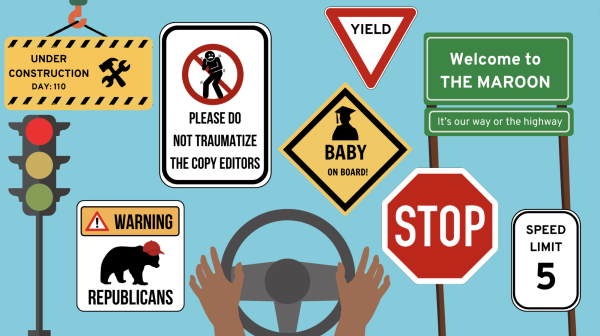
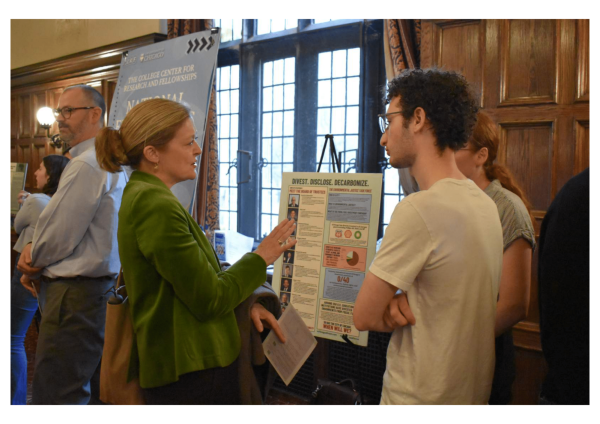
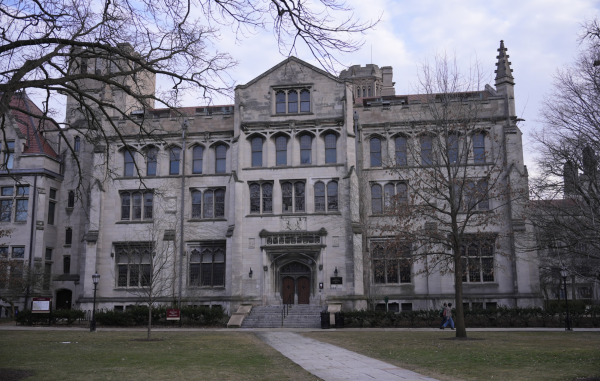
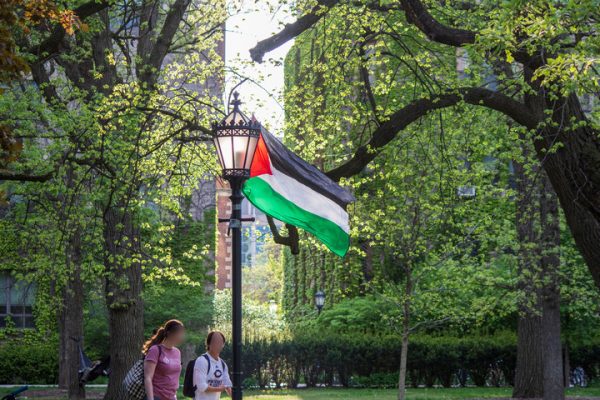
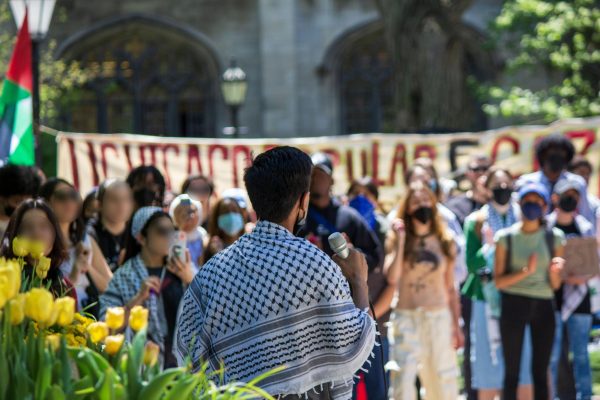
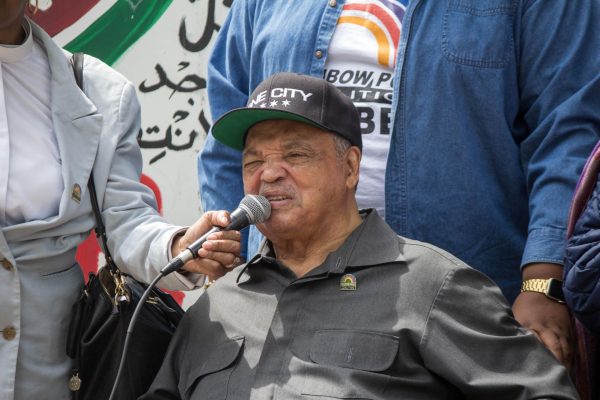
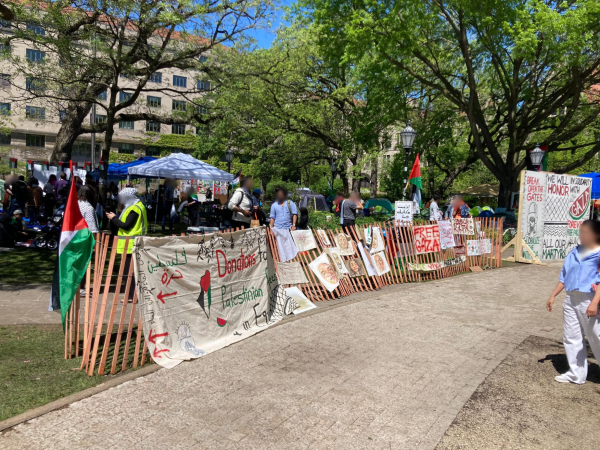
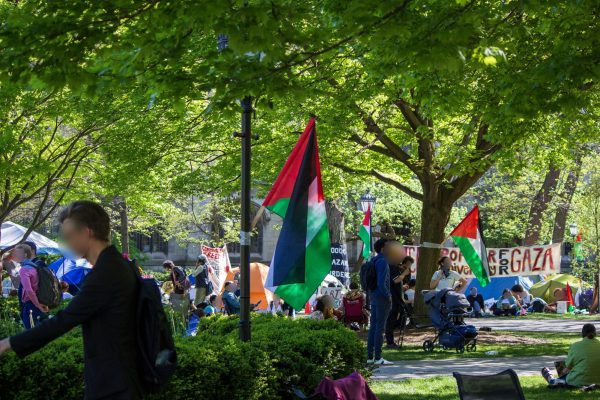
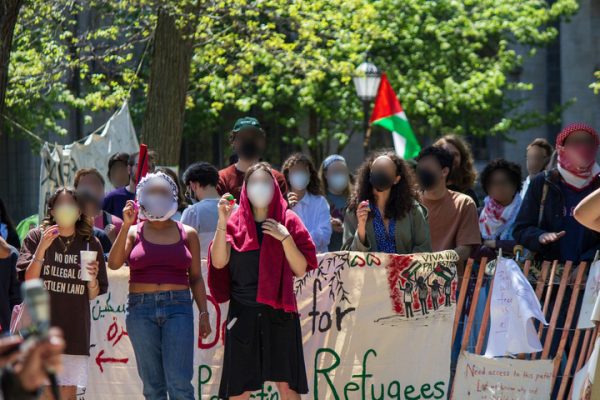
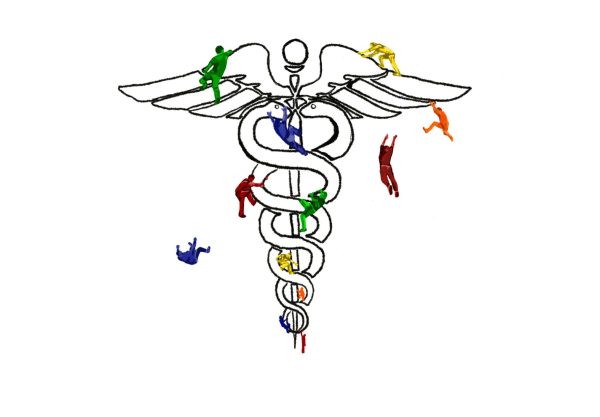
Matthew G. Andersson / Jan 23, 2023 at 10:00 am
This op-ed doesn’t speak beyond what readers may already know concerning free speech policy at UChicago, all of which is in the public domain. What it otherwise signals to students is perhaps more telling of administrative priorities and preoccupations.
It especially reiterates the University’s open warning to students and others who in the administration’s sole discretion, may “violate” university speech and expression behavior—by including a link to a voluminous contract called University Statute 21. This is of course somewhat of a veiled threat against protesting, and protestors, including perhaps the GSU.
Mr. Alivisatos apparently feels compelled to underscore the University’s disciplinary system in an independent student newspaper, not because he is a free-speech champion, as much as it may shield or preempt his corporate, state, and foundation interests from potential embarrassment or accountability—by interrogation that may too aggressively question the objectives, ideology or cross-interests funded by such sources. Institutional control is the objective of all university policy.
He also carries water as a subordinate to the two sources of actual University authority: Trustee governance, and political special interests which are embedded throughout the institution, including in the Office of the President. Regards, ’96, Booth School of Business
Andrew M. Klein / Jan 24, 2023 at 10:04 am
It is remarakable to me (though it should not be), as an old grad of the College and of the Law School, to learn that the U of C has grads so baldly devoted to protecting “protesting and protestors” from disciplinary action when they act to undermine or interfere with the University’s free speech commitment. Frankly, “protesting and protestors,” no matter the reason for their protests, always smacks of mob action, a protesting collective acting together — the antithesis of speech, which necessarily must come from a single speaker. At the University surely there is no need for protections for mobs. Protections from them is another matter.
UGH / Jan 17, 2023 at 3:06 pm
This is elegant, ostensibly high-minded image management. As I understand it, President Alivisatos has simply enumerated the many ways in which the administration has tangled with the concept of free expression, sidestepping the harassment of Dr. Rebecca Journey in November as a clear violation of the Chicago Principles. If the admin is truly committed to upholding those principles, why was this incident not even mentioned at the Zell event on free expression and social media, which took place ONE WEEK LATER?
Also, PA clearly hasn’t looked into the legal landscape of hate crimes in cyberspace. If he had, he would have acknowledged the absence/weakness of current legal protections. He might then have reasonably argued that until “our civil polity” catches up to reality, university administrations have a responsibility to articulate clear policy that protects community members—and follow through on enforcing those policies. He might then have smartly positioned U of C as a leader on that charge. But since he didn’t bother to look into the history and legal stakes of cyberharassment, this op-ed reads as myopic, self-congratulatory PR.
Niko / Jan 20, 2023 at 11:33 am
The President’s piece accomplishes what I would want of my institution’s leader. In the context of the broad mission of the University, he articulates the importance of free expression and various means by which the University is attempting to put its policies into practice. UGH’s critique focuses on unexplained deficiencies in the legal system (not something I expect my University president to fix). Please allow me to suggest that free expression within the University community is facilitated by civility, including the avoidance of personal attacks such as calling the President “myopic” and “self-congratulatory.”